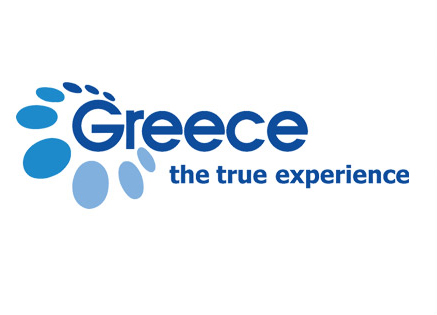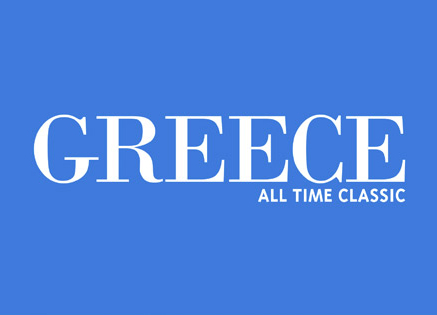Greece with a latin flavour!
The sapphire waters of the Ionian Sea welcome you to paradise. Kefalonia, Corfu, Zante, Lefkada, Ithaca, and Paxi. All of these holiday destinations are wonderful. The major islands of the Ionian lived for centuries under Venetian rule and it shows in their castles and churches. Carpeted with olive trees, pines and vineyards, they are fertile and green, a stunning setting for their award-winning white-sand beaches and peacock-blue waters. Their hospitable citizens have an extra music gene.
On land, you’ll want to explore the monasteries and mountain villages, so different from the worldly port towns and yacht basins, and seek out waterfalls, hiking trails and scenic routes by car or motorbike. Nature lovers can retire to the wetlands for birdwatching or the marine parks for glimpses of elusive monk seals and Loggerhead turtles. As for sailing or cruising, there’s no better place than the Ionian, where the winds are favourable, the anchorages safe. Kite- and windsurfers already know that the Ionian is a mecca for their sports.
Celebrated exotic beaches
Award winners, the stunning beaches of Lefkada – Engremni, Porto Katsiki, Kathisma – and the Shipwreck beach on Zante are famous the world over. Voutoumi and Vrika on Antipaxi are beloved by boat owners, while Schinos on Ithaca is where the elite meet. Myrtos, on Kefalonia, appears on many posters, its white crescent lapped by milky blue waters and framed by towering cliffs. Then there’s Kaladi on Kythera, and of course Corfu’s much-photographed Paleokastritsa. The Ionian islands have dozens more large and small beaches, with a full range of facilities and watersports.
Lands of myths and colourful traditions
Mediaeval castles and monasteries, storied buildings and excellent museums – testaments to the rich culture and history of the Ionian islands. On Corfu, Homer’s kingdom of the Phaeacians, popular sights are the city’s Old and New Venetian Forts, the Achillion palace built by Sissy, empress of Austria, and Mon Repos. Outstanding museums include the Asian Art collection in the Palace of St Michael and St George, the Archaeology Museum, Municipal Gallery and others. Also famous are the island’s marching bands in full regalia, their unusual Easter customs and the processions in honour of patron Saint Spyridon.
In Lefkada you will find one of the most impressive mediaeval buildings in Greece, and the island’s most significant attraction: the stalwart 14th century castle of Santa Maura guards the entrance to Lefkada and is waiting to be explored, while throughout town you’ll notice wonderful examples of 17th and 18th century Ionian baroque churches. Kefalonia too has impressive attractions: Venetian fortresses, but also Mycenaean tombs, Roman mosaics and baroque churches, while Argostoli’s Corgialenios Museum and Library are among the best in Greece. On Zante, the basilica and bell tower of Agios Dionysios remind one of Venice, and the monastery of Agios Georgios ton Gremnon above Shipwreck bay is beautifully preserved. Fans of Byzantine architecture will also want to venture to the Strofades islands 37 nautical miles off Zante to see the impressive 13th century monastery fortress there.
Enjoy windsurfing, kitesurfing and sailing in the Ionian islands
The larger Ionian Islands are champions in the area of watersports. Every year Lefkada draws more wind- and kitesurfers who find their nirvana at the beaches of Vasiliki, ranked by some as the best in the Med, and Myli. Sailors based in Nydri, set off for the nearby smaller islets of Meganisi, Kalamos and Kastos. North of Corfu, the Diapontia islands are very popular destinations with sailors who then make the tour of Corfu before heading south to Paxi. Antipaxi, Kioni on Ithaca and Kefalonia’s Fiskardo are beloved destinations for sailing in the Ionian all summer long. The whole of the Ionian is truly a boon to sailors all summer long. And for those who love to walk or cycle, each island has well-marked trails through green mountains and varied scenery, including the fabulous, 220 km long Corfu trail. Corfu also boasts an 18-hole golf course at Ermones, in the Ropa valley, which besides being challenging and fun, has also been described as one of the biggest courses in Europe.
Unique cuisine and dishes that have the aroma of the Ionian Sea
The Ionian islands will surprise you with their wealth of culinary experience. These islands stand out for their cosmopolitan and sophisticated flavours that characterise their unique cuisine. The most famous dishes from the Corfiot kitchen are sofrito (slow-cooked veal with garlic and parsley), bianco (fish in a white sauce), bourdeto (piquant fish stew) and pastitsada, a rich ragout of veal or chicken with thick pasta. Keep a look out for ginger beer and kumquat liqueur, exclusive to Corfu. In Lefkada and Zante, dinners are frequently accompanied by strolling musicians, who fill the air with delightful Italian-sounding cantadas. On Kefalonia, the piece de resistance is a rich meat pie with lots of extras, on Zante it’s salsa, meat stew with cheese. On Zante, locals will offer you a local nougat delicacy called mantolato – and if they don’t, just ask for it!
Natural attractions and historical sights on the Ionian islands
- Kefalonia: Unforgettable images on Kefalonia start with your first glimpse of the hamlet of Assos and its Venetian castle, almost overgrown with pines and cypresses, followed by delightful Fiskardo, and the ‘rival’ towns of Argostoli and Lixouri. For natural wonders, don’t miss the caves: Drogarati, 150 million years old, and Melissani, with its underground lake.
- Zante: The sea and coast around Zante were picked for Greece’s first marine park. This is where the rare caretta caretta sea turtles lay their eggs. In spring these endangered creatures set off from the Libyan Sea and the southern Adriatic, to lay their eggs in the sands of Gerakas, Dafni, Kalamaki, Marathonisi and, especially, Sakania, east of Laganas.
- Ithaca: This island is the homeland of Homer’s Odysseus. You’ll want to visit the listed settlement of Kioni and mediaeval Anogi, built right on a mountain ridge.
- Corfu: Corfu’s sights include the islets of Vlaherna and Pontikonisi (Mouse Island), Sidari (with its famous beach Love Canal), Paleokastritsa, Kassiopi, Lefkimmi, and also Kouloura and Kalami, made famous by the Durrell brothers’ books. The town of Corfu should be top of your list, with its cobbled alleys, the Liston Arcade, the Spianada – the largest town square in the Balkans, where you may happen upon a cricket match – and dozens of buildings and monuments left by Venetian, French and British rulers.
- Lefkada: Off Lefkada, the legend of shipping tycoon Aristotle Onassis endures on the islet of Skorpios, opposite Nydri, one of the Ionian’s biggest yachting centres. Here among the most breathtaking sights is the lighthouse at Cape Lefkata and Sappho’s Leap, while the most popular is the Faneromeni monastery. Traditional Agios Nikitas on the west coast is a favourite, flanked by great beaches.
- Paxi: Make a point of taking a close look at the castle of Ai Nikolas, a listed monument which was first built in 1423 and is the most famous attraction on the island. It was reworked by Venetians in 1510 according to plans drawn up by none other than Leonardo da Vinci.



